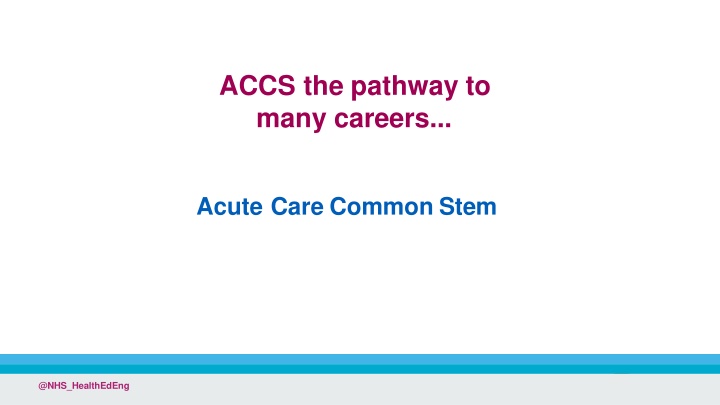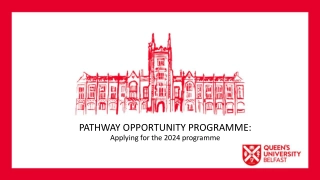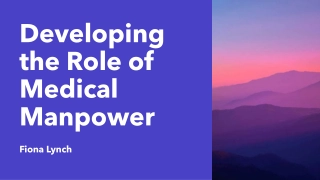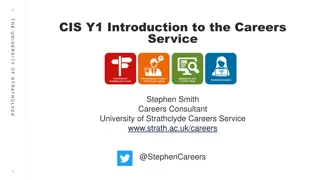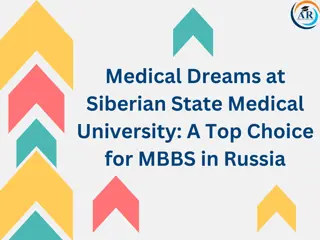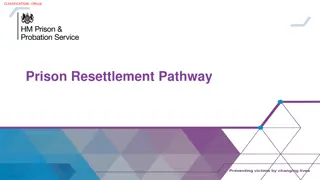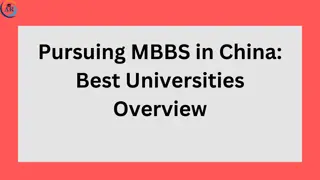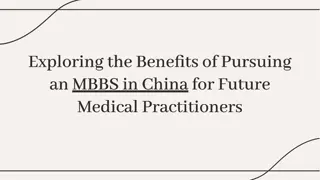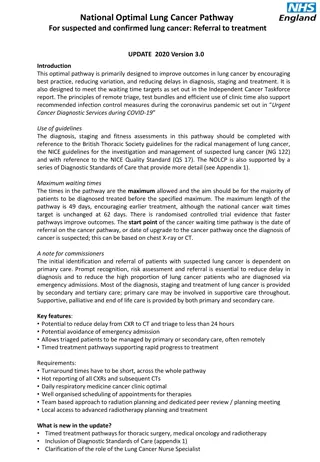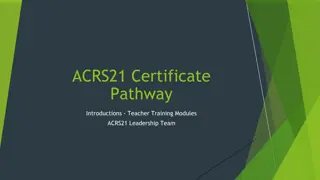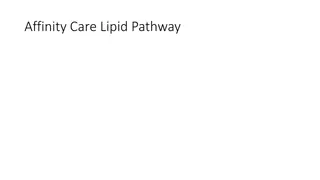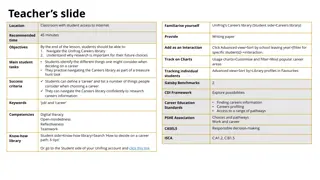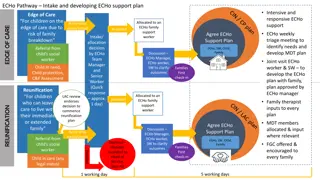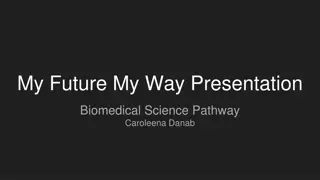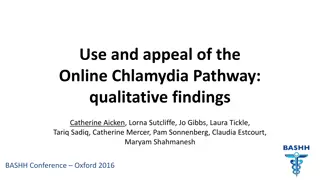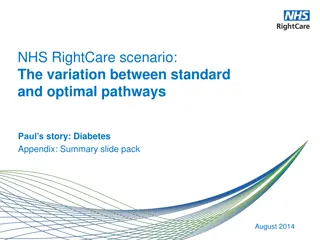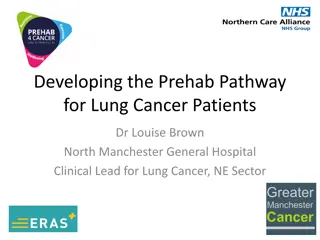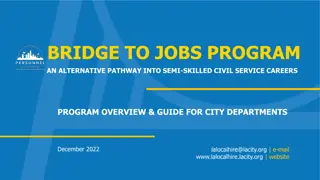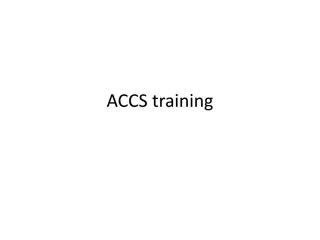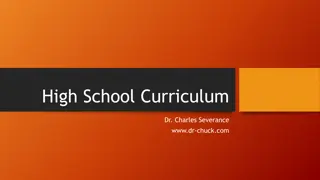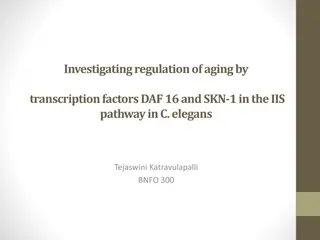ACCS - Pathway to Diverse Medical Careers
ACCS offers a three-year training program encompassing Emergency Medicine, Acute Medicine, and Anaesthesia, providing a comprehensive foundation for specialties like Intensive Care Medicine. The curriculum emphasizes multi-competent skills for managing diverse medical scenarios, preparing junior doctors for higher specialty training in various fields. Regional variations ensure a well-rounded experience with placements in Acute Medicine, Emergency Medicine, Anaesthesia, and Intensive Care. Choose ACCS for a dynamic pathway into the medical profession.
Uploaded on Mar 03, 2025 | 0 Views
Download Presentation

Please find below an Image/Link to download the presentation.
The content on the website is provided AS IS for your information and personal use only. It may not be sold, licensed, or shared on other websites without obtaining consent from the author.If you encounter any issues during the download, it is possible that the publisher has removed the file from their server.
You are allowed to download the files provided on this website for personal or commercial use, subject to the condition that they are used lawfully. All files are the property of their respective owners.
The content on the website is provided AS IS for your information and personal use only. It may not be sold, licensed, or shared on other websites without obtaining consent from the author.
E N D
Presentation Transcript
ACCS the pathway to many careers... Acute Care Common Stem @NHS_HealthEdEng
What is ACCS? Three* year training programme (3rd year is stream specific) *Anaesthesia steam will do four years at core (ACCS year 1 EM/AM and then three core years of Anaesthesia) Three Specialty streams Anaesthesia/Emergency Medicine/Acute Internal Medicine Four Different 6 month placements Emergency Medicine Acute Medicine Anaesthesia Intensive Care Medicine Three Royal Colleges Numerous Schools ONE Curriculum! (but part of EM Curriculum) @NHS_HealthEdEng
So its the... The first 3 years of Emergency Medicine Training An alternative pathway to core Anaesthesia and Acute Internal Medicine Training Can allow progression to Intensive Care Medicine (ICM) single or dual CCT Provides the extra requirements for Pre-Hospital Emergency Medicine (PHEM) @NHS_HealthEdEng
Why do ACCS? The aim of ACCS training is to produce multi-competent junior doctors able to recognise and manage the sick patient and who have the complementary specialty training required for Higher specialty training in Emergency Medicine, JRCPTB specialty, Anaesthesia and Intensive Care Medicine. In anaesthesia and AIM it allows trainees to have a more acute and widely based experience than core trainees prior to ST3 training. @NHS_HealthEdEng
What does it consist of? Three streams: Emergency Medicine (EM) Acute Medicine (AM) Anaesthesia (Anaes) Your stream is the parent specialty you applied for eg Emergency Medicine run through training, Anaesthetics ACCS, AIM Emergency Medicine trainees are ST1-3 Anaesthesia / AIM CT1-3 @NHS_HealthEdEng
ACCS National Curriculum regional variations The first two years of ACCS are identical for all 3 streams 6 months placements in year 1: Acute Medicine Emergency Medicine 6 months placements in year 2: ICM Anaesthesia @NHS_HealthEdEng
Streams, Schools, Trusts and Placements West Midlands Specific You are usually placed in the same trust for AM and EM and within a similar geography for Year 2 Year 3 is spent in the parent specialty Trainees in the EM stream are assigned to the North or South region and Anaesthesia to one of the 3 Anaesthetics Schools Birmingham, Stoke, Warwickshire based on where your first placement is. This is purely for ARCP and administrative purposes. Training in all regions/schools is similar You may be placed in a Trust which is in another region or School due to a finite number of training places in the West midlands and a need to extend or move trainees for special reasons ALL placements are within the West Midlands and we do NOT move trainees from one side of the region to the other Being in a different school will not affect your training and you have the option to attend regional teaching in either school Year 2 allocations are not set in advance but are assigned in April 2020. Trainees wishing to express a preference may email the TPD in January 2020 explaining their reasons. Where possible we will try to accommodate any requests, but as a general rule you will be placed in the same Trust for both years of nearby. You cannot ask to move schools/regions @NHS_HealthEdEng
The Curriculum* 11 Learning Outcomes Care for the physiologically stable adult patient Make safe clinical decisions Identify sick adult patients, be able to resuscitate and stabilise and know when to stop Care for the acutely injured patient Deliver key ACCS procedural skills @NHS_HealthEdEng
The Curriculum* 11 Learning Outcomes Deal with complex and challenging situations in the workplace Provide safe basic anaesthetic care including sedation Manage patients with organ dysfunction and failure @NHS_HealthEdEng
The Curriculum* 11 Learning Outcomes Support, supervise and educate Participate in research and manage data appropriately Participate in and promote activity to improve the quality and safety of patient care @NHS_HealthEdEng
Key Procedural Skills Pleural aspiration of air Chest drain: Seldinger and open technique Establish invasive monitoring (CVP and Art line) Vascular access in emergency- IO, femoral vein Lumbar puncture Fracture/dislocation manipulation External pacing Cardioversion Point of care ultrasound- Vascular access and Fascia iliaca block @NHS_HealthEdEng
Acronym-fest! ACCS!!! (Acute Care Common Stem) ICACCST (Intercollegiate Committee for ACCS Training) LEPs (Local Education Providers) JRCPTB (Joint Royal Colleges of Physicians Training Board EM/AM (emergency/acute Medicine ARCP (Annual Review of Competency & Progression) TPD (Training Programme Director) CMP (Core Major presentations AP (Acute Presentations) PP (Practical Procedures) MiniCex/DOPS (SLE or WPBAs) @NHS_HealthEdEng
Formal teaching Regional monthly teaching matching EM curriculum for EM stream trainees 1st Wednesday each month* Rotates around region Attend for all 2 years In Y1 Anaes and AIM trainees attend local regular teaching during EM and AM placements In Y2 EM continue to attend EM regional teaching plus departmental teaching Anaes attend local and school based teaching AIM attend local and regional CMT teaching @NHS_HealthEdEng
Useful People Heads of School: Anaesthesia: Dr S Edmends EM: Miss H Chatwin Medicine: Dr Phil Bright TPDs - West Midlands: Mr J Monga & Dr S Crawford (EM), Dr R Danha (anaes), Dr S Fair (AM) - East Midlands: @NHS_HealthEdEng
Useful links http://www.westmidlandsdeanery.nhs.uk/Specialty-Schools/Postgraduate-School-of- ACE/ACCS https://www.rcoa.ac.uk/accs http://www.rcem.ac.uk/Training-Exams/Training https://www.jrcptb.org.uk @NHS_HealthEdEng
